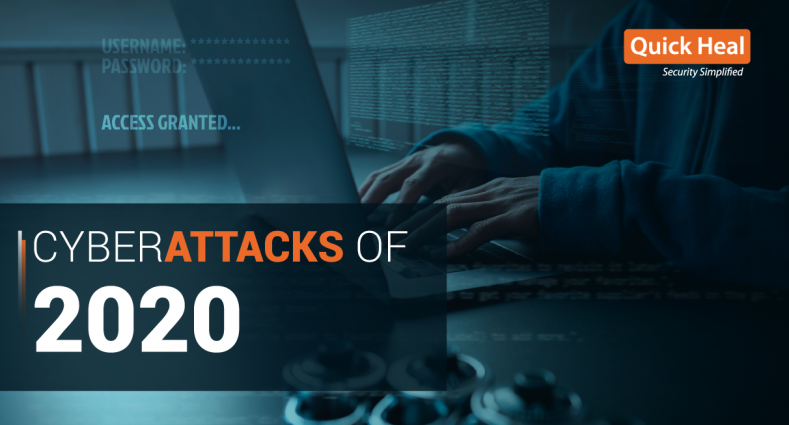The Biggest Cyberattacks of 2020…so far

It’s been a crazy 2020 so far. The COVID-19 pandemic has ravaged the entire world, changing the nature of how human beings live and interact with each other. There have been other natural disasters that have caused tremendous loss of life and devastation.
But that didn’t mean cybercriminals remained quiet. In fact, the chaos of the year emboldened them – with the pandemic forcing entire populations to switch to online classes and Work-From-Home (WFH), cybercriminals found new opportunities to launch attacks and cause mayhem. The year still isn’t over and the pandemic continues to rage – expect to see more such targeted cyberattacks.
Below is a list of some of the most notable cyberattacks of the year.
The Twitter Bitcoin hack
Twitter is one of the most popular social mediums in the world but even long-time users were in for a surprise on July 15th. High-profile global figures like Elon Musk, Barack Obama, Bill Gates and even companies such as Apple, Uber posted identical weird tweets, claiming to support Bitcoin and then going on to provide an address of a cryptocurrency wallet. The tweet claimed that all Bitcoin sent to the specified address would be doubled and returned!
While, in the beginning, some felt that it was a publicity stunt, it was quite clear that this was a coordinated and audacious cyberattack. Investigations revealed that the perpetrators had used social engineering to gain access to Twitter’s administrative tools and carried out this attack. Over 130 accounts were affected and the address mentioned received over US$ 110,000 in Bitcoin!
The Marriott data breach
On March 31st, hospitality giants Marriott International shocked the world when they announced that personal information for close to 5.2 million guests may have been accessed using the login credentials of two employees at a franchise property. According to the hotel giant, the information access consisted of contact details, loyalty account information, personal details like gender and birthdays, and other personal preferences. This data breach dated back to January and came on the heels of the organization suffering a similar data breach in 2018.
EasyJet cyberattack
British low-cost airline group EasyJet’s troubles were further exacerbated during the pandemic when they found themselves at the receiving end of a highly sophisticated cyberattack in June. EasyJet admitted that over approximately 9 million customers had been affected in the attack and 2,208 customers had their credit and debit cards accessed. In a statement, the airline said they were reaching out to all customers who had been affected to warn them to be wary of any phishing attempt. Later media reports suggested that hackers from China were behind this attack.
New Zealand stock exchange goes offline
Proving the real-time consequences of cyberattacks, the New Zealand stock exchange (NZX) was beset with several cyberattacks in August and September and, at times, was knocked offline. The source of the attack was reported to be a Distributed Denial of Service (DDoS) attack from abroad which halted trading and caused a major impact. The attacks continued through September with the New Zealand government also getting involved with the country’s Government Communications Security Bureau also called in for help.
Cyberattacks can attack anyone and the only prevention is a strong security solution. Quick Heal offers a range of solutions to ensure your devices stay safe from the many threats of the digital world.
No Comments, Be The First!